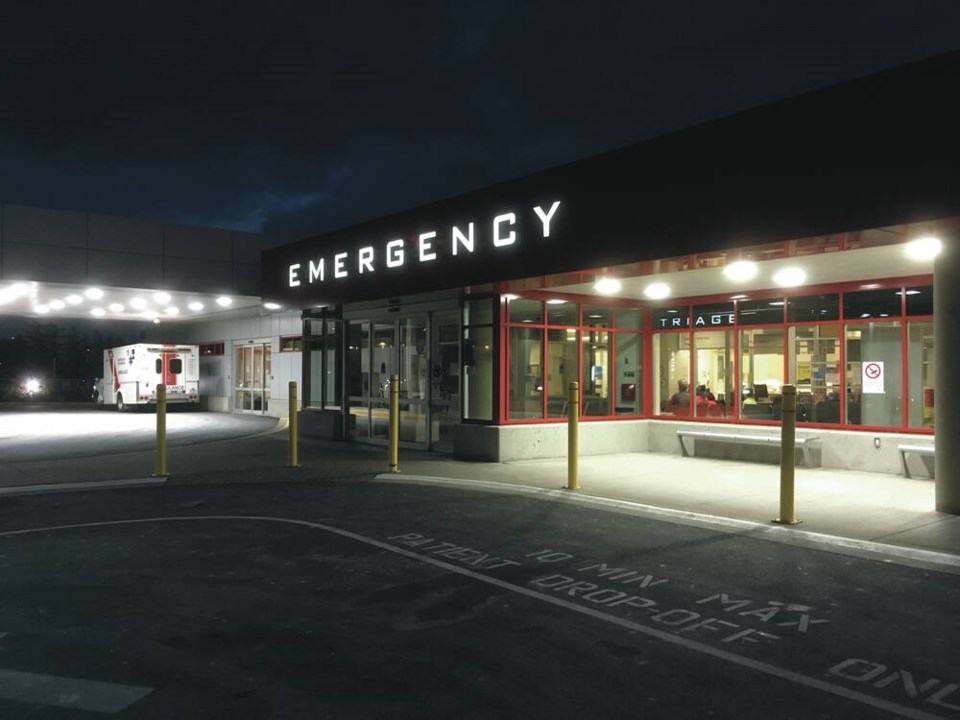A commentary by a Vancouver Island emergency physician.
This is not a discussion on the right to health care; I believe everyone should have access to health care. I also support that patients have autonomy and the right for self-determination when it comes to health care.
My question is very simple: Who holds the voters, the public, accountable for their use of the health-care system?
As a physician I am accountable to government and to the College of Physicians and Surgeons. Government can question and influence my practices through application of the Medical Services Plan.
The College has a mandate to ensure safety of the public when health care is provided by physicians. They wield a large hammer over physicians: A physician cannot practise in the province without a College licence.
Patient complaints are taken very seriously by the College and can jeopardize licensure or invoke disciplinary action against the physician.
Consumers, a.k.a. voters, hold the provincial and federal governments accountable for their health care at the polls every few years. If voters aren’t happy with the policies of the government, the government is tossed from office, so government is loath to anger the electorate.
Health authorities lack the courage in leadership to tackle this unchecked access for fear of incurring the wrath of their minders, the government. The College’s mandate does not extend to how health care is accessed by consumers.
An emergency physician colleague recently explained to a patient politely that their presenting issue was chronic over several months without any acute change and was more appropriate to address with their general physician rather than the emergency department.
The patient felt his chronic issues of several months precluded a wait of three weeks to see his primary care provider. The patient complained to the College and my colleague was administered disciplinary action.
The physician was reprimanded for trying to influence behaviour and educate the public on what constitutes appropriate use of an urgent/emergent care setting.
Consider some of my patient presentations in the emergency department recently: a cough for three years, toe pain for a year, a request for a fifth MRI in 12 months for the same complaint without any acute change “for reassurance.”
None of these patients had any acute change and all had a GP.
How about the patient with the sore throat for 20 minutes? The patient who had an argument with a colleague and came to the emergency department complaining that “their feelings were hurt”? The grandmother, daughter and granddaughter, all presenting with their support dogs for a complaint of “anxiety.”
Where is the patient accountability? Where is the common sense or insight?
Some will argue that one often has no choice as to when to seek emergency care. However, this argument doesn’t account for the reliable drop in emergency department visits for Super Bowl, the World Series, or the last episode of Game of Thrones. This suggests that some have a choice when to access “emergency” care.
Health-care resources are finite. The above examples take resources from a sick child, the oncology patient with intractable pain or the truly sick person without a health-care provider in the community.
Does anyone stop and reflect on the impact of our health-care decisions on others and on the system? Is there understanding that health care is funded by our taxes? Are we willing to pay increasingly more in taxes to afford escalating health-care costs and unrestricted access without consequences?
Financial cost of unchecked access is only one threat to sustainability of the system.
I am weary and burning out watching government and the health authorities focus on providing never-ending services and placing escalating demands on providers rather than showing some courage to actually lead and tell consumers that their unlimited access should have some limits.
I am grateful I can make a difference and help others. I am grateful I have skills to help others, and that I have the stamina, at least for now, to provide unlimited health care.
However, if the trajectory continues without public accountability, my stamina will reach its limit, like the provincial budget allocated to health care.
We were recently directed by health authority leadership to start coming in earlier for work and be prepared to stay late to accommodate patients. We were reminded that we have seven days every week available to provide care for patients.
When does my well-being and my sustainability factor into the equation?
>>> To comment on this article, write a letter to the editor: [email protected]



